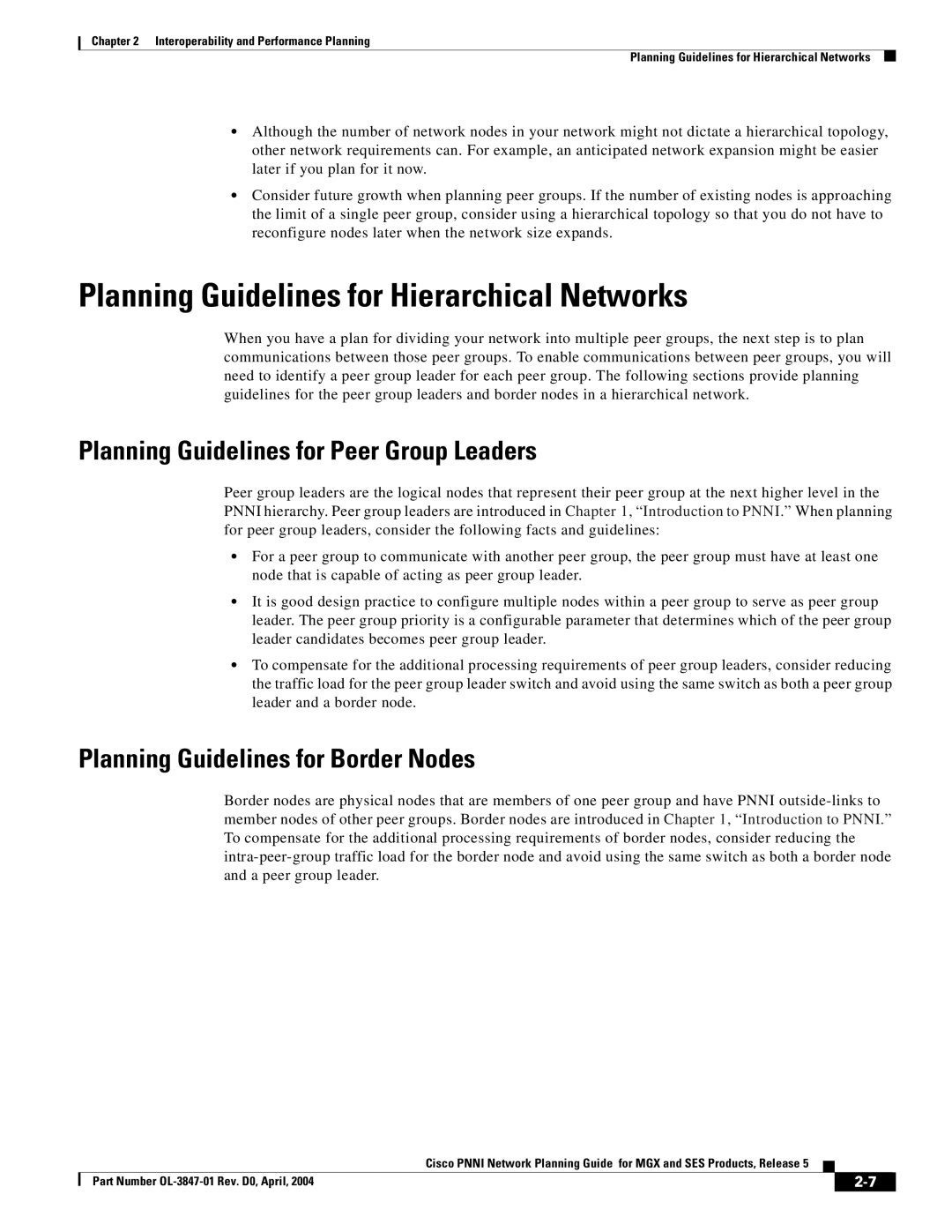Chapter 2 Interoperability and Performance Planning
Planning Guidelines for Hierarchical Networks
•Although the number of network nodes in your network might not dictate a hierarchical topology, other network requirements can. For example, an anticipated network expansion might be easier later if you plan for it now.
•Consider future growth when planning peer groups. If the number of existing nodes is approaching the limit of a single peer group, consider using a hierarchical topology so that you do not have to reconfigure nodes later when the network size expands.
Planning Guidelines for Hierarchical Networks
When you have a plan for dividing your network into multiple peer groups, the next step is to plan communications between those peer groups. To enable communications between peer groups, you will need to identify a peer group leader for each peer group. The following sections provide planning guidelines for the peer group leaders and border nodes in a hierarchical network.
Planning Guidelines for Peer Group Leaders
Peer group leaders are the logical nodes that represent their peer group at the next higher level in the PNNI hierarchy. Peer group leaders are introduced in Chapter 1, “Introduction to PNNI.” When planning for peer group leaders, consider the following facts and guidelines:
•For a peer group to communicate with another peer group, the peer group must have at least one node that is capable of acting as peer group leader.
•It is good design practice to configure multiple nodes within a peer group to serve as peer group leader. The peer group priority is a configurable parameter that determines which of the peer group leader candidates becomes peer group leader.
•To compensate for the additional processing requirements of peer group leaders, consider reducing the traffic load for the peer group leader switch and avoid using the same switch as both a peer group leader and a border node.
Planning Guidelines for Border Nodes
Border nodes are physical nodes that are members of one peer group and have PNNI
|
| Cisco PNNI Network Planning Guide for MGX and SES Products, Release 5 |
|
| |
|
|
| |||
| Part Number |
|
|
| |
|
|
|
| ||
